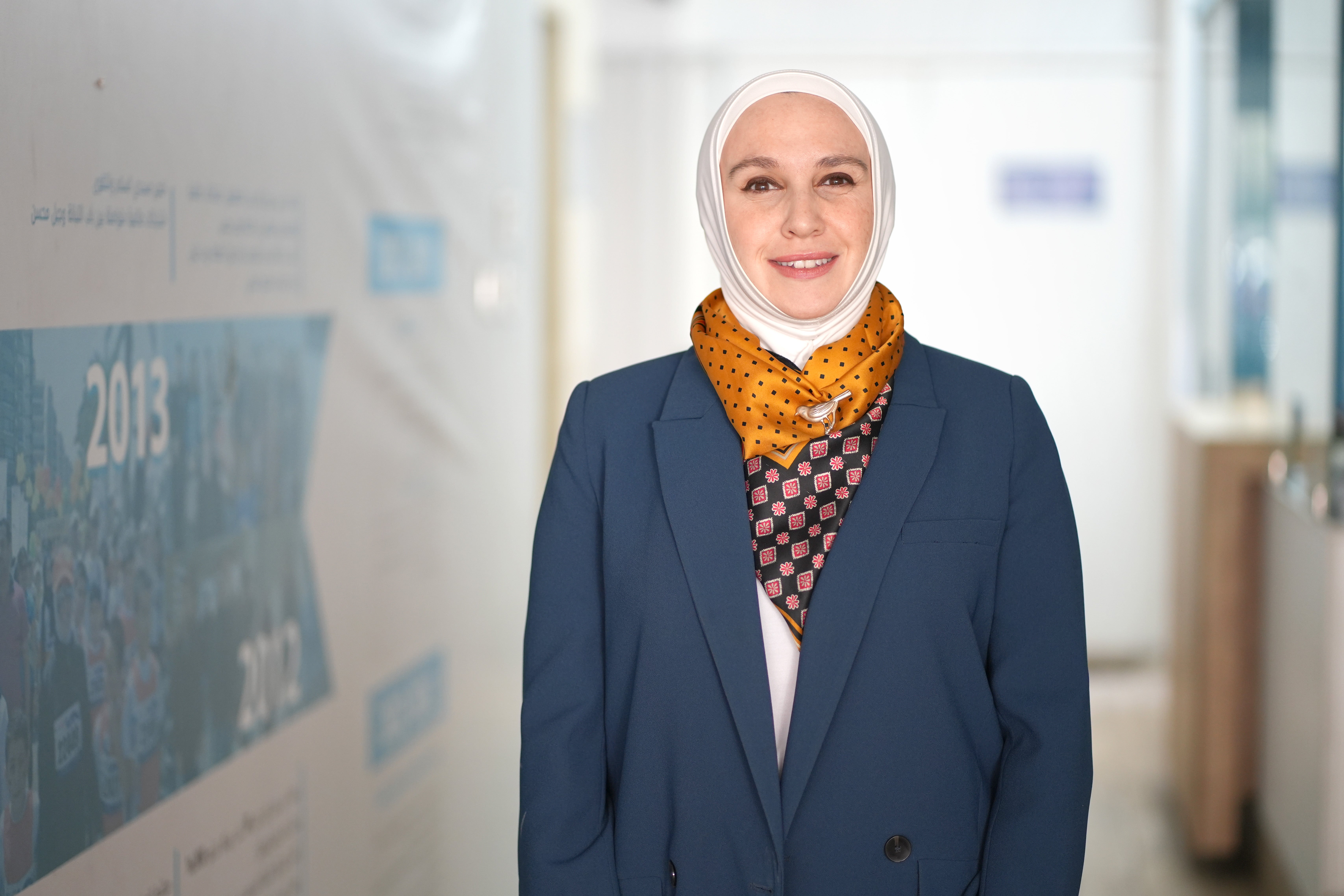In the words of Reem Haj Ali: “Shelters themselves are mines of human resources”
Date:
Reem Haj Ali, 39 years old, living in Tripoli, is a founding member and Project and Programme Manager of the Ruwwad Al Tanmeya NGO. She serves as their focal point with UN Women under a United-Kingdom-funded project to increase women’s political participation. She is also engaged in combating gender norms in Tripoli through involving 120 university students in training and workshop sessions, who themselves will be conducting community initiatives in the North. She shares what she is doing to help and empower displaced women in the current context.

“After the Israeli attacks started in Lebanon, with the onset of the displacement crisis, we mobilized our volunteers, our community kitchen social restaurants, friends and stakeholder’s network. We used our expertise in community organizing to address the most urgent needs of displaced people.
We’ve witnessed first-hand the devastating impact that displacement has on families, especially women and children. They’re still keeping their heads high, as they are proud people, and their dignity needs to be preserved. Assistance is not charity; it should be perceived as part of empowerment.
Ruwwad Al Tanmeya has been working in the social sector for 12 years now. We have always managed to adapt our resources to meet the needs of the times. We knew we needed to be present and attend to the needs of the people. In moments of distress, people should not be left to face their struggles alone. We try to offer hope and maintain their faith that things will improve. We ensure that our work is inclusive, empowering people and being responsive to the most urgent needs.
At the start, people only had the clothes on their backs. Nothing else. We felt compelled to mobilize the organization’s resources to address these challenges. Some people might think that the needs of so many people are too high. But even small actions can provide relief and restore some sense of safety, which reaffirms our commitment to this work. All NGOs are coordinating and working together on the ground, and this is a very positive aspect.
There are gender-specific concerns revolving around women’s safety, health and economic security. Many women might face increased risks of gender-based violence, might lack access to showers, safe spaces, maternal care and so on, which exacerbates their vulnerabilities. Privacy and safety are the primary concerns. Another aspect, seen in many shelters, is that women and children want the school year to start. As much as possible, they want things to continue normally. The needs are changing day-by-day, but water, access to sanitation and health, food security and education are clearly the most prevalent.
We have undertaken tasks across many sectors: food production and distribution; needs assessments; in-kind donations, etc. Part of what has made this possible are international organizations, which responded swiftly to the emergency. UN Women, for example, took immediate action from day one. They listened attentively to what was happening on the ground and adapted their interventions based on NGOs’ feedback. In many cases, entire project funds were entirely redirected towards emergency assistance or additional funds were allocated.
We have been providing hot meals to shelters and we have received countless requests to distribute our meals to additional shelters, because of their quality. But unfortunately, we cannot accommodate everyone.
At the shelters, both women and men take an active role in highlighting those staying at the schools and their skills. Many want to be involved in the support process and offer their help. The shelters themselves are mines of human resources. You feel proud that these are your people and that they feel safe.
The presence of women in every sector is an added value. Women play a vital role in protecting other women. Women understand the challenges we all face, which helps us connect and support each other. Women have a better sense of the needs and vulnerabilities of their peers, to effectively look for solutions that address these issues.
We need to make sure to include women in decision-making so we can respond to crises in a more inclusive and effective way. The key to success includes strong communication, empathy and cultural awareness. Resilience and commitment to empowering others and other women is crucial in driving positive change.
As long as the needs persist, we will embrace our responsibility with strength and determination. We do not know how long this is going to take, so we need to remind ourselves every day that there is a need, and we need to support each other. We find ourselves in a situation that demands resilience and the ability to remain positive in difficult circumstances.”